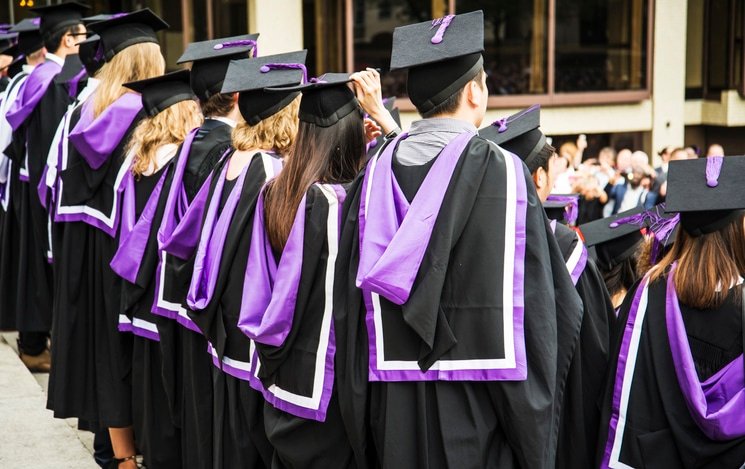
University students, and efforts to attract their votes, have been relatively prominent in several recent general elections. From the Liberal Democrats famously courting the student vote in 2010 with their pledge (later broken in government) to abolish tuition fees, to Jeremy Corbyn’s plans to abolish fees and bring back maintenance grants in 2017 and 2019, with significant focus on the accompanying, albeit contested, ‘youthquake’ in 2017.
However, policies for young people generally have been conspicuous by their absence in the 2024 campaign so far, and for those in higher education even more so. A summer election is likely to have unpredictable effects on voting patterns, with many students dispersed around the country rather than living in their term-time accommodation, though the Higher Education Policy Institute nonetheless estimate that the student vote could be key in 50 marginal constituencies.
An ageing electorate and tight public finances are the obvious explanations for the lack of focus, but students and higher education more generally are facing significant challenges that are not registering politically at the moment.
Student maintenance levels have failed to keep up with the rising cost of living
During the ongoing cost of living crisis, student maintenance loans have failed to keep up with rising costs. And this has had real consequences for students, with 33% of students in working class families skipping meals to save on food costs. Students have also had to take on increasing hours of part-time work, with almost a quarter of students reporting they have missed a course deadline because of a job.
In 2024/25, students in England will be £2000 worse-off than if rises in maintenance support had been in line with inflation since 2021/22. And the parental income thresholds that determine eligibility for support have been frozen for more than a decade. If these thresholds had increased with inflation even just since 2016, 30,000 more young people each year would be eligible for the maximum level of support.
England is also the only UK nation which doesn’t currently offer some form of maintenance grants, which do not need to be re-paid, to the poorest students. Since they were abolished in 2016, students from lower income backgrounds have been leaving university with the highest levels of debt. Research released by the Sutton Trust this year has estimated that poorer students graduate with £60,100 of debt, 38% higher than the £43,600 borrowed by those in wealthier families.
What are the political parties’ plans to tackle this crisis?
Disappointingly, no party has committed directly to increasing the financial support available to students, or to increasing parental income thresholds. The Liberal Democrats and the Green party have, however, both promised to re-instate maintenance grants.
This is a positive step and would help to tackle the high debt levels of the poorest students. However, it is notable that the parties most likely to have control over the education purse strings after the election have been silent on the issue. Furthermore, neither the Lib Dems nor the Greens have a concrete offer on increasing the overall amount of maintenance support in students’ pockets.
Conservative policy on higher education is limited to an ill-judged and likely ineffective attempt to save money by closing down ‘mickey mouse’ degrees. While Labour offer nothing substantive whatsoever beyond a declaration that “The current higher education funding settlement does not work for the taxpayer, universities, staff, or students”. Reform’s manifesto includes a commitment to requiring universities to provide two-year courses, which could risk creating a two-tier system, with poorer students taking shorter and less well-regarded courses than their wealthier peers.
Future policy
The current state of public finances poses a major challenge for whoever forms the next government. Should Labour win the election, they will need to find a solution to the higher education and student finance conundrum. Squaring the circle of the perilous state of university finances, tuition fees which have been frozen for a long time but remain comparatively high internationally, and a student maintenance system which neither gives students enough money to live on, nor protects the poorest students from leaving with the highest debts.
Nonetheless, it is possible to increase the amount of support available to students, extend eligibility to more families, and to re-introduce maintenance grants, without additional costs to the Exchequer.
The Sutton Trust has put forward a scenario with modelling work carried out by London Economics, which through tweaks to the repayment system to make it more progressive would make these changes cost neutral. Such a system would make £11,400 per year in maintenance support available to students from the poorest homes, £4,121 of which would be in the form of a non-repayable grant.
So while the future of HE funding overall is undoubtedly a politically tricky challenge, it is possible to address the issues being faced by students who are struggling financially without breaking the bank. Beyond the manifestos, this is something the next government will need to tackle with a greater urgency than is currently being shown.
Source: suttontrust.com







 Please wait...
Please wait...

Add comment